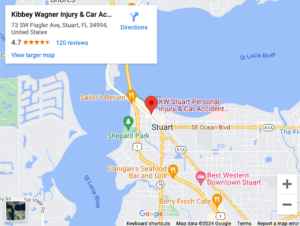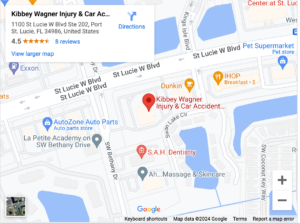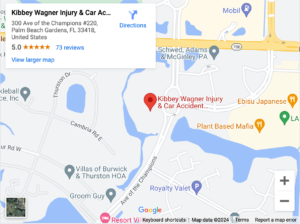Loss of earnings and diminished earning capacity are two separate but related elements of economic damages that you might seek in a personal injury claim. Diminished earning capacity, in particular, can be difficult to calculate.
Types of Damages
Florida law, like the law of other states, recognizes the following three types of personal injury damages:
- Economic damages: Medical expenses, loss of earnings, diminished earning capacity, out-of-pocket expenses
- Non-economic damages: Intangible damages such as emotional distress, loss of enjoyment of life, and pain and suffering
- Punitive damages. An amount that courts occasionally award to punish the defendant for particularly reprehensible behavior.

Florida is a no-fault state for car accidents and typically requires you to turn to your own insurance company for compensation after a collision. However, you can escape the no-fault auto accident system if your injuries are serious enough.
Loss of Earnings

Common sense will tell you the basic meaning of the term ‘loss of earnings.’ In actual practice, however, it gets more complicated. Calculating lost earnings varies depending on how you earn your income:
Wages
If you earn an hourly wage, calculating your hourly income is straightforward. Just take the number of hours of work you missed due to your injury and multiply it by your hourly wage. It can get more complicated, of course, if overtime or holiday work is involved, but all that means is that you’ll have to calculate those amounts separately and add them in later. You might also have to take wage increases into account.
Salary
If you work on an annual salary, start with your annual salary and divide it by the number of days you normally work in a year. That will give you a daily amount. Multiply that amount by the number of days you missed because of your injury.
Entrepreneur
If you are an entrepreneur, calculating your lost earnings can get complex. How do you calculate the number of missed business meetings with potential clients? To calculate lost income, you will need to look at past profits, projected growth, and lost opportunities. You might have to analyze your profit and loss statements and your tax returns, and you might need the help of an expert witness.
Commission
If you work on commission, you might use your average past commissions as a baseline (like a salary) and then adjust for the future using market conditions to measure potential future deals lost due to your injury.
Keep in mind that you will also have to add in the amount of any benefits you would have accrued if not for your injury. How much is the use of a company car worth, for example, if you weren’t able to use it while you were recovering?
Diminished Earning Capacity
‘Diminished earning capacity’ refers to the total amount of money you expect to lose from the date of your accident throughout the course of your life.
Under most circumstances, the best way to calculate diminished earning capacity is through the use of the following evidence:
- Your employer could testify about how much less your services are worth compared to the time immediately before your accident.
- An expert medical witness can testify about the severity of your injuries.
- A vocational rehabilitation expert can estimate the likelihood of your eventual return to your previous position or to any position at all.
- An economic expert can estimate your future earning capacity.
Your age at the time of your injury is critical to determining the amount of your damages. Suffering a disability at the age of 60 is different from suffering a disability at the age of 30. The younger you are, the more you could be entitled to.
What Happens if You Underestimate Your Future Damages
If you suffer diminished earning capacity, you might have to retire immediately or you might have to settle for a lower-paying position that will affect your income for decades to come. Either way, you’re going to have to demand a significant amount of future damages from the responsible party. It can be difficult to calculate how much money you need.
So what happens if you underestimate the amount you need? Imagine, for example, that you are 46 when you suffer your accident. You demand and receive enough money to last you for 10 years, until you are 56. You live until you are 80.
What are you going to do for money between 56 and 80? You must accurately forecast how much money you are going to need, even decades into the future.
A Stuart Personal Injury Lawyer Can Help With Your Claim for Loss of Earnings/Diminished Earning Capacity
If you suffered a personal injury, it’s a good idea to hire a Stuart personal injury lawyer. Hiring a lawyer can help make the personal injury claims process more manageable. Under the contingency fee system that most personal injury lawyers use, you only pay legal fees if you win. Call the experienced attorneys of Kibbey Wagner Injury & Car Accident Lawyers at (772) 444-7000 or contact us online for a free consultation.




